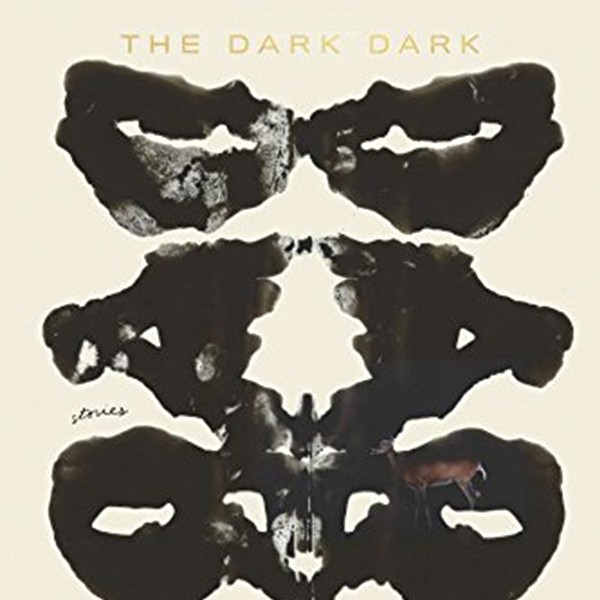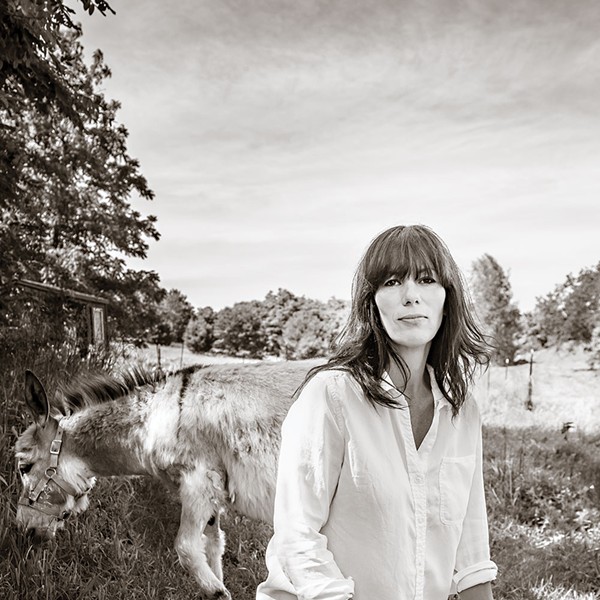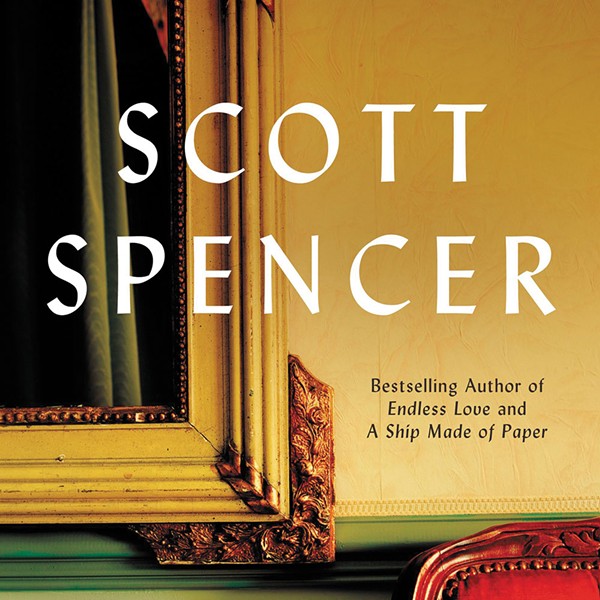Hong Kong, 1939. It’s December, and I’m born the fifth child of my parents, after two girls and two boys. One of my brothers will die young. But after his death, no one speaks of him any longer. My children will not know anything about him—except that he once existed and died at a tragic adolescent age while in military service for China. I am still a child. My name is Sook-Yi.
My family is rich. We have everything we want. We have servants. We live in a big house that overlooks Happy Valley Racetrack in Hong Kong. Hong Kong is now a colony of the British Empire. China lost the war. Our island was the booty. So it is the British, the gui-lo (“white devils”), who rule us. My father (whose large jowls make his future grandchildren describe him as a frog) is in the legal profession. He was a lawyer, but Chinese are no longer allowed to be lawyers, so he works as a translator for the British lawyers—bridging the culture and language gap of the two sides. It is a wide gap. My father’s position is very powerful. They depend on him. He is respected. So we do not feel the oppressiveness of the British like the other Chinese do.
My father travels all over the world for business, even to America. He brings back the latest technology to us. We, the Laus, are the first family in Hong Kong to own a vacuum cleaner! It is a marvel. My sisters and I are dropped off at school in a chauffeured automobile. It is a foreign-brand car. Everyone at school looks at us when we arrive at the gates. We hold our heads high but we are not snobby.
My mother is very religious and she comes from a humble background. She will not let us get proud. My mother and my father were married through a matchmaker. You see, my father’s family did not want their own to marry the kind of good-for-nothing girls my father liked. His mother thought them gold diggers, or lazy. Vain creatures. So she found my mother. My mother is a hard working woman. She is pious. Yes, she is older than my father, and, yes, she is of a different class, but she is trustworthy. Once my father’s mother gave her approval, the match was made. The wedding was held at our home and my mother has given my father five children so far. My youngest sister is still in her belly.
We have a happy family, although my mother does not like to dress up for all the fancy occasions my father loves. She does not like parties, or make up, or booze. My father loves all that. He especially loves to dance and to gamble. They, my two eldest sisters and my parents, watch the horse races every weekend. My father owns a racehorse and has a special box seat to watch. He never wins money, only loses, but it is worth the amusement. I am still too little, so I can only watch from the windows of our house, in my pajamas, with my brother.
I am a good girl at school. One of the popular girls. I am polite and do not cause trouble, not like my younger sister, the mischief-maker. She has just been born and is already giving my mother a heartache. She is a daddy’s girl. She will be sent to Australia when we reach high school, and there she will become pregnant and have to get an illegal abortion. But now we are still young girls, just children, and we think only of weekends on the beach with our cousins. Big Cantonese feasts at the seafood restaurant on the river. We have a house that we go to on the weekends. My father joins us. We all laugh, and play, and my father showers us with gifts, clothes, toys, food. We are happy. Very happy. I love my father.
Running along the beach. My feet drag in the sand. It is slow. The waves crash into my ankles, dragging up seaweed and other ocean debris to shore. My cousins are faster than me. They run ahead. I can’t catch up. Something washes up. It is big and bloated and ugly. A horrible waxy color. It smells. My cousins have stopped running. They look. I look. It is a man.
When I am 15, my father will leave us. He will pretend not to leave us but he will. My father will meet a woman, a dancing girl who works at a Shanghai nightclub. My father travels so much on business, he is all over China and the whole world all the time. He meets this woman who loves make up and dancing and is much younger than my older mother. He does not tell anyone at first. But the servants begin to talk. They know where he spends his time. The chauffeur, who is loyal to my mother, will tell her the truth. She will confront my father. He is caught.
In Hong Kong, in 1954, it is still legal to have many wives. My mother is First Wife; the other woman whose name I will never utter to my children is Concubine. But Concubine is a proud woman, boastful and vain. We are forced to attend their marriage. The marriage of this other woman to my father. After they exchange their vows, my mother must kiss this other woman’s hand. I can’t watch. I’m crying.
At first, the arrangement is two nights with Concubine and five nights with us. Soon it becomes three nights at her house and four nights with us. Then, it is only two nights at home with us, until finally I stop seeing my father altogether. He is no longer interested in his old family. He does not come home at all, and I never see him on weekends anymore either. He does not come to my school awards ceremonies or sports matches. He does not come to pick us up from anywhere. He stays over at the other woman’s house all the time—even if he never packed his things and took them with him.
I sometimes see him at the racetrack, in his box, but he is with her, looking so happy, like brand new. He does not even look up at the windows of his old house where his daughters still stand, their foreheads pressed up against the wide panes of glass.
The servants are the ones who tell us all the news of my father. He does not call or tell us anything. Concubine is pregnant. She will have a baby boy. That boy, the servants tell us (and they know because they bathe the baby), has a deformed penis. We giggle.
“It is fate,” my mother scoffs.
That baby boy will grow up to be a good-for-nothing man. He will live with his mother his entire life, never marrying or having his own children. He, like my father, likes gambling too much and squanders away his inheritance. He never holds a job in his life. He has only one sister, who is nice, not mean like him. But she will not marry or have children either. She will work hard as a librarian her whole life, and then retire an old maid. They too will move to Canada after my brother and all of us do.
We will all go to Canada because Hong Kong has too much gossip. I will move to Toronto after I meet my husband. My sisters and mother will stay in Vancouver. My father and his new family will choose Alberta, where he will die of a heart attack when I am 47. I will cry a lot. Ho-Yin will try to comfort me. My children, who have English names and never meet their grandfather, will feel nothing from his loss.
After my father moves out, he also stops sending my mother money. At first he keeps up the bills, but like the time, the money soon stops coming. My mother rents out rooms in our house to support the costs. We have strangers living with us all the time. It is not our house anymore. So my brother goes to Canada for university. He is brave, smart. He pays his own way. He will send for us all to come when he gets his papers.
I graduate from high school with honors. I enter Hong Kong University. A male student, one year older than me, begins to ask me out for dates. He is persistent. His name is Ho-Yin. My mother likes him very much. He is studying to become a civil engineer. He comes from a working class family. His mother is a nurse and his father is a ferryboat operator. My mother urges me to stick with him. She warns, Marry a professional, Sook-Yi, not a spoiled businessman. A rich man will leave you because he will have the means. A professional will be able to support you but will not be vain. He will not be ambitious and pride will not destroy your family. Ho-Yin’s English name is Henry.
I feel very young for my age. Henry and I are moving to London, England. It is his idea. He is filled with big ideas. He holds me very tight. We will get married in London. Without family or friends. Just the two of us and a local witness in Ealing Abbey. I make my own dress. I am now named Eva.
It is the beginning of our new life. Henry is an engineer but he will become a big businessman. A real estate developer. He will become rich. Like my father. And Henry will leave me for another woman. Another woman who is the same age as his own daughter. He will meet her in Russia, on a business trip, after we have been married for 34 years, after we have raised four children together. But I do not know this yet. I am young. I do not know anything to come. I do not know the changes that will happen and how I will push him away. How he will push me away.
I never saw the end coming but I remember now that my grandmother never trusted Ho-Yin, warning me that a man with such big dreams, who adores me this much, will one day grow bored and find he can just as easily adore another woman with the same passion, chase after even bigger dreams. I do not listen. But I will tell this to my daughters when it all happens. When he leaves us. I will tell them things they do not want to hear. I will tell them too many things without thinking first, “These are my children.” I cannot help it. I am trapped. I am still a little girl. At my age.
Jennifer Wai-Lan Huang’s “Happy Valley” was chosen by juror Abigail Thomas for
honorable mention in our 2007 Literary Supplement short story contest.

















